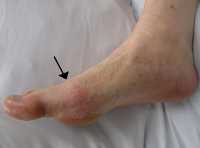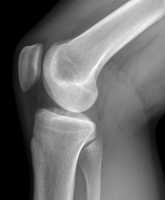MedicalResearch.com Interview with:
Richard Alan Furie, MD
Professor, Center for Autoimmune, Musculoskeletal and Hematopoietic Diseases
Feinstein Institutes for Medical Research
Chief, Division of Rheumatology, Northwell Health
Professor of Medicine, Donald and Barbara Zucker School of Medicine
Hofstra/Northwell
MedicalResearch.com: What is the background for this study?
Response: It has been known for decades that type I interferons play a role in SLE pathogenesis, and therefore the burning question has been whether inhibitors of these pro-inflammatory cytokines would reduce SLE disease activity and could be used as a therapeutic. There are several strategies for inhibiting the type I interferon pathway, but a conventional approach is to create an antibody against the target protein. The first few clinical trials in SLE evaluated monoclonal antibodies to alpha interferon. Results were modest at best. Since this approach only inhibited one (alpha) of five type I interferon subtypes, there were still four subtypes unaffected that could provoke inflammation. A rather crucial piece of information is that all five subtypes bind to the same receptor. Therefore, if the receptor is blocked as opposed to a single cytokine, the entire type I interferon family of proteins would be prevented from binding the receptor. This was accomplished with anifrolumab.
The phase 2 study in SLE (known as MUSE), which yielded very robust results, was reported several years ago. It served as a foundation for the phase 3 program, which consisted of two pivotal studies known as TULIP-1 and TULIP-2. Both studies were reported at the 2019 American College of Rheumatology meeting in November, 2019. Although TULIP-1 did not achieve the primary endpoint, several secondary endpoints were met. TULIP-2 was successful. Between all three studies, approximately 1000 patients were enrolled. Taking advantage of these large numbers, additional analyses of the combined datasets afforded our ability to answer questions about the effects of anifrolumab that were not previously addressed with greater power.
In the narrative that accompanied my presentation, I stated
“In lupus, disease activity begets damage, and damage begets more damage. The long-term sequelae of heightened disease activity, better known as flare, are significant. Regardless of how flare is defined or measured, a major goal is to prevent flare.
It is quite justified to think a drug that reduces lupus disease activity should also prevent flares. Well, the proof is in the pudding.
In this analysis, we evaluated the effects of anifrolumab on flares. Recall that anifrolumab targets the type I interferon receptor, blocking all 5 type I subtypes. The phase 2 MUSE study yielded robust results as did the phase 3 TULIP-2 study. While, the phase 3 TULIP-1 study did not achieve its primary endpoint, many secondary endpoints showed benefit.
In this study, we focused on flare, and examined TULIP-1 and 2 individually as well as pooled data from both studies.”
(more…)






















![MedicalResearch.com Interview with: Jeffrey D. Kent, M.D., FACG, FACP Executive Vice President, Medical Affairs and Outcomes Research Horizon MedicalResearch.com: What is the background for this study? What is the marker for reduced immunogenicity with Pegloticase? Response: Pegloticase is a recombinant, pegylated uricase that is used for treatment of chronic gout in patients who fail oral urate lowering therapy (uncontrolled gout) and has a demonstrated impact on the serum uric acid (sUA) level. As with other biologics, in some people the body’s immune system develops anti-drug antibodies and reduces the effectiveness of the biologic therapy. Recent case series and open-label trials have suggested that using an immunomodulator with pegloticase has the potential to increase the durability of response so patients can receive a full course of therapy. Researchers in the RECIPE trial sought to examine whether the co-administration of disease-modifying antirheumatic drugs (DMARDs), specifically mycophenolate mofetil, may mitigate this loss of efficacy and increase in response rates for people living with uncontrolled gout MedicalResearch.com: Are symptoms of gout improved as well as reduced infusion reactions? Response Results from this trial indicated that short-term concomitant use of mycophenolate mofetil with pegloticase was generally well tolerated. It was also associated with a statistically significant and clinically meaningful impact on the proportion of patients achieving and maintaining an sUA ≤6 mg/dL at 24 weeks. No infusion reactions were reported in the pegloticase/mycophenolate mofetil arm (0 or 22 patients) compared to 30 percent (3 of 10) of patients reporting infusion reactions in the pegloticase/placebo arm. It’s been well established that in patients receiving pegloticase with persistent urate lowering, they experience relatively rapid resolution of tophi indicating significant reductions in their urate burden. MedicalResearch.com: What are the main findings? Response: This is the first randomized controlled trial evaluating pegloticase co-prescribed with an immunomodulator compared to pegloticase with placebo. Data showed that 86.4 percent of patients (19 of 22) receiving co-therapy of pegloticase with mycophenolate mofetil achieved an sUA ≤ 6 mg/dL through Month 3, the primary study endpoint, compared to 40.0 percent of patients (4 of 10) receiving pegloticase monotherapy. After Month 3, all patients received pegloticase only and at Month 6 a sustained response was shown in 68.2 percent (15 of 22) of patients who had received pegloticase with mycophenolate mofetil versus 30.0 percent (3 of 10) of patients who received pegloticase and placebo. This data adds to the growing body of evidence on the concomitant use of pegloticase with an immunomodulator to ultimately help more patients receive a full course of therapy and improve outcomes and may help shift the treatment paradigm in uncontrolled gout. MedicalResearch.com: What should readers take away from your report? Response: While rheumatologists are familiar with and may use DMARDs for other autoimmune conditions to minimize the development of anti-drug antibodies and increase response to therapies, data shows that the use of an immunomodulating therapy in patients with uncontrolled gout can improve response rates. MedicalResearch.com: What recommendations do you have for future research as a result of this work? Response: There is a consistent pattern demonstrating that the concomitant use of pegloticase and an immunomodulator can improve patient outcomes without introducing additional toxicities. As clinicians we understand the immense burden gout places on our patients. Future research should continue exploring options to maximize the benefit of effective treatments to improve patient outcomes. MedicalResearch.com: Is there anything else you would like to add? Response: Uncontrolled gout is a chronic, systemic inflammatory condition and we continue to see data linking it to many comorbid conditions. Horizon is evaluating the use of methotrexate to improve response rates for pegloticase. We are committed to exploring various immunotherapy co-treatment options to allow both patients and clinicians to address elevated sUA levels to minimize urate burden and avoid lasting damage to the body. RECIPE is an investigator-initiated trial led by Puja Khanna, M.D., M.P.H. and Kenneth Saag, M.D., M.Sc. Citation: Khanna P, Khanna D, Cutter G, Foster J, Melnick J, Jaafar S, Biggers S, Rahman A, Kuo H, Feese M, Saag K. Reducing Immunogenicity of Pegloticase (RECIPE) with Concomitant Use of Mycophenolate Mofetil in Patients with Refractory Gout—a Phase II Double Blind Randomized Controlled Trial [abstract]. Arthritis Rheumatol. 2020; 72 (suppl 10). https://acrabstracts.org/abstract/reducing-immunogenicity-of-pegloticase-recipe-with-concomitant-use-of-mycophenolate-mofetil-in-patients-with-refractory-gout-a-phase-ii-double-blind-randomized-controlled-trial/. Accessed November 12, 2020. [subscribe] Last Modified: [last-modified] The information on MedicalResearch.com is provided for educational purposes only, and is in no way intended to diagnose, cure, or treat any medical or other condition. Always seek the advice of your physician or other qualified health and ask your doctor any questions you may have regarding a medical condition. In addition to all other limitations and disclaimers in this agreement, service provider and its third party providers disclaim any liability or loss in connection with the content provided on this website.](https://medicalresearch.com/wp-content/uploads/2020/11/Dr-Jeffrey-Kent.jpg)




